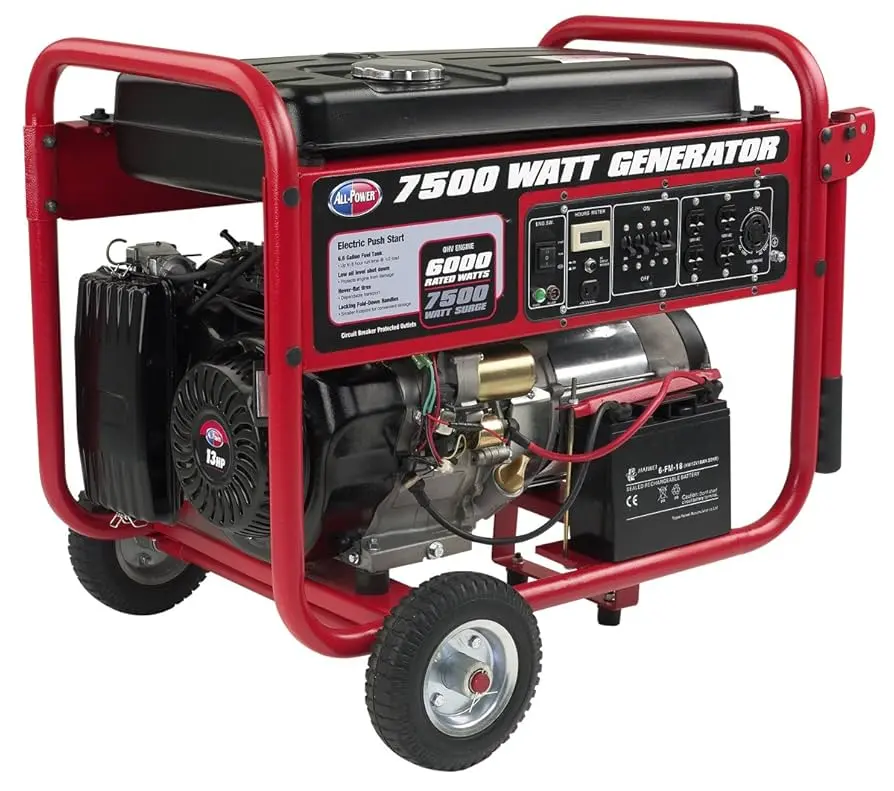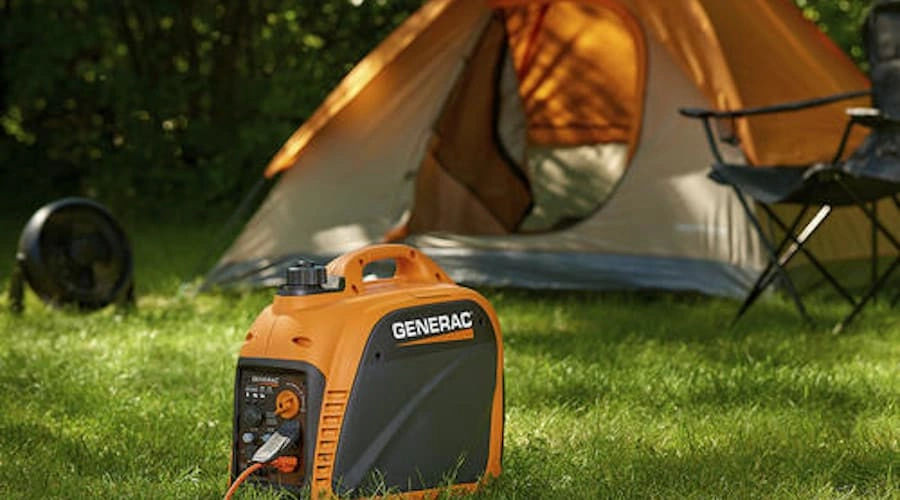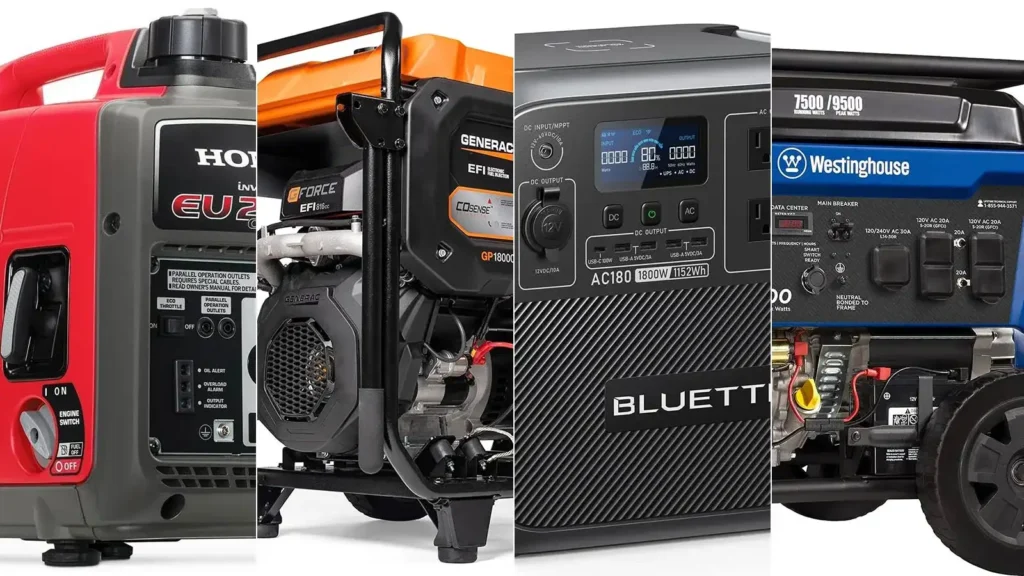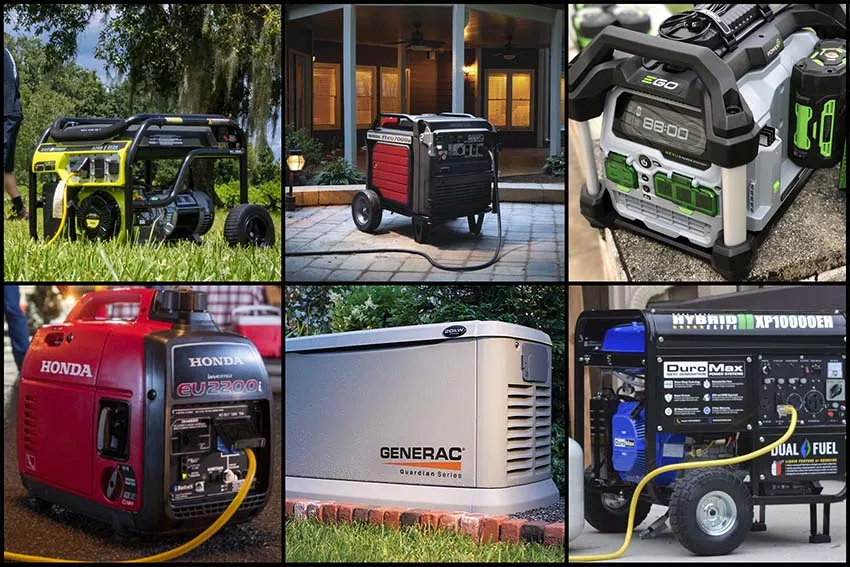Grounded Electric is a trusted electrical contractor that helps homes and businesses prepare for safe backup power. The right way to buy a generator is to match it with your home’s power needs, fuel type, and budget. Start by adding the power required for key items like refrigerators, sump pumps, and heating or cooling systems.
Next, compare types of generators, such as portable units, inverter generators, or home standby generators, to see which one fits your needs.
This generator guide explains features, safety tips, and installation details so you can choose with confidence. With advice from Robert “Bobby” Mulholland, our licensed head electrician, and Barret Abramow, our project manager and co-owner, you will know exactly what to look for when buying generator equipment.
Key Takeaways
- Choosing the right generator starts with calculating your wattage needs, including both running and starting watts for key appliances.
- Portable generators offer low-cost, flexible solutions, while home standby units on natural gas lines deliver whole-house backup power.
- Safety features like carbon monoxide sensors, fuel shutoff, and surge protection protect your home and electronics.
- Generator prices range from $400 for portable units to $20,000 for standby systems with installation.
- Regular checks, code compliance, and licensed installs by Grounded Electric keep your system safe and reliable.
Generator Wattage and Sizing Guide
Common Appliances and Wattage Needs
Wattage tells you how much power an appliance needs. Running watts are the power used while running. Starting watts are higher and needed when the item first turns on. Here are common examples:
- Refrigerator – 700W running / 2,200W starting
- Sump pump (1/2 hp) – 1,000W running / 2,000W starting
- Window AC – 1,200W running / 3,600W starting
- Electric oven – 2,000W running / 5,000W starting
- Lights (10 bulbs) – 600W running / 600W starting
- Laptop – 200W running / 200W starting
Add these numbers to know the amount of power needed during power outages.
How do I calculate what size generator I need?
List all the items you want to power. Add their running watts and the highest starting watts. For example, a refrigerator, sump pump, and lights may need 5,000 watts. A large home with HVAC may need house generators with 10,000–12,000 watts.
Is a 7500-watt generator enough?
A 7,500-watt generator is enough for most mid-sized homes. It can run lights, refrigerators, sump pumps, and small appliances at once. Homes with central air or electric ovens may need a home standby generator with more capacity.

Runtime and Noise-Level Considerations
Generators run for different lengths of time. Portable units often run 6–8 hours. Inverter generators can last 8–12 hours. Home standby units on natural gas lines can run nonstop.
Noise also matters. Open-frame models run at 70–80 dBA, while inverter generators are quieter at 55–65 dBA. Quieter models are better for homes and neighborhoods.
What to Look for in a Generator
Basics for first-time buyers
A portable generator buying guide helps new buyers understand fuel types, wattage, and types of generators. Portable units are cheaper and good for short use. A home standby generator powers the whole house. Talking with Barret Abramow makes sure your choice fits your real needs.
Key features and safety guidelines
When learning what to look for in a generator, check for:
- Electric start for easy use.
- Automatic transfer switch for quick backup power.
- Durable parts built for outdoor power equipment.
- Carbon monoxide sensors for safety.
Advanced Safety Features
New models add extra safety. Low-oil shutoff protects the engine. Fuel shutoff valves reduce fire risk. Surge protection keeps electronics safe. Bobby Mulholland recommends picking models with these features for safe use.
Inverter generator benefits
Inverter generators make clean, steady power. They are quiet, save fuel, and adjust power output. They cost more but give peace of mind during long outages.

Honda vs Generac generators
Honda generators are known for quiet use and good fuel economy. Generac generator units are popular for whole-home standby power. The right choice depends on whether you need portable power or full-house backup power.
Portable Generator Buying Guide
Portable generator options for home and work
Portable generators are good for small jobs, appliances, and outdoor power equipment. They work for short outages, job sites, and camping. They are flexible and cost less than whole-house systems.

Pros and cons of portable models
Portable units are low-cost and mobile. But they need manual fuel, setup, and extension cords. They cannot power an entire home like a standby system.
Typical Generator Costs by Type
Costs vary. Portable units cost $400 to $1,200. Inverter generators cost $800 to $2,500. Home standby generator systems start at $3,000 and can exceed $10,000 with installation.
Best Generators for Backup Power
Standby vs portable backup options
A home standby generator runs on natural gas lines or propane. It starts by itself when the power fails. Portable units need setup and fuel but cost less. Your choice depends on your budget and the amount of power you want.
Costs, installation, and maintenance
House generators vary in price by size, permits, and fuel source. Maintenance includes oil changes, inspections, and testing. Grounded Electric installs and maintains systems to meet code and keep them reliable.
How to Buy a Generator for a House
Professional setup and installation
How to buy a generator for house coverage starts with an electrical load check. Grounded Electric handles permits, installs transfer switches, and connects fuel types safely.
Long-term operating costs
Fuel types affect costs. Gasoline is easy to find but more costly. Natural gas and propane cost less per hour and are more reliable. Planning for fuel costs helps avoid surprises.
Generator Types Comparison
Generator Wattage Calculator
Select what you want to power. We’ll total running watts, add the highest starting surge, and suggest a generator size with buffer.
Add Custom Items
Note: Values are estimates. Actual wattage varies by model.
Results
View selected items
Generator Maintenance and Lifespan
Fuel efficiency and runtime
Fuel type affects how your system performs. For instance, a diesel generator delivers high torque and long runtime for heavy electrical loads, while propane models are cleaner and easier to maintain.
You can also compare the performance of diesel vs. propane generators in this guide to find the right fit for your home. Inverter generators adjust output automatically for better fuel economy.
Tips for safe, long-term use
Run your generator monthly. Use stabilizers when storing fuel. Inspect extension cords and replace if worn. Get yearly service to keep it safe.
Compliance and Safety Standards
Generators must meet NFPA codes and local rules. Most installs need permits and inspections. EPA rules cover fuel and emissions. Grounded Electric follows all standards for safe installs.
Quick Generator Buying FAQs
- Can a generator power a house? Yes, with the right standby model.
- Which fuel type lasts longest? Natural gas if available.
- Do generators need permits to install? Yes, they must be done by licensed electricians.
- Are inverter generators worth it? Yes, if you need quiet use and safe power for electronics.
Final Tips Before Choosing Your Generator
The best choice balances wattage, fuel types, and budget. With Barret Abramow and Robert “Bobby” Mulholland guiding the process, you get safe, expert advice.
If you’re unsure which model suits your home, call Grounded Electric for professional guidance and installation support.



